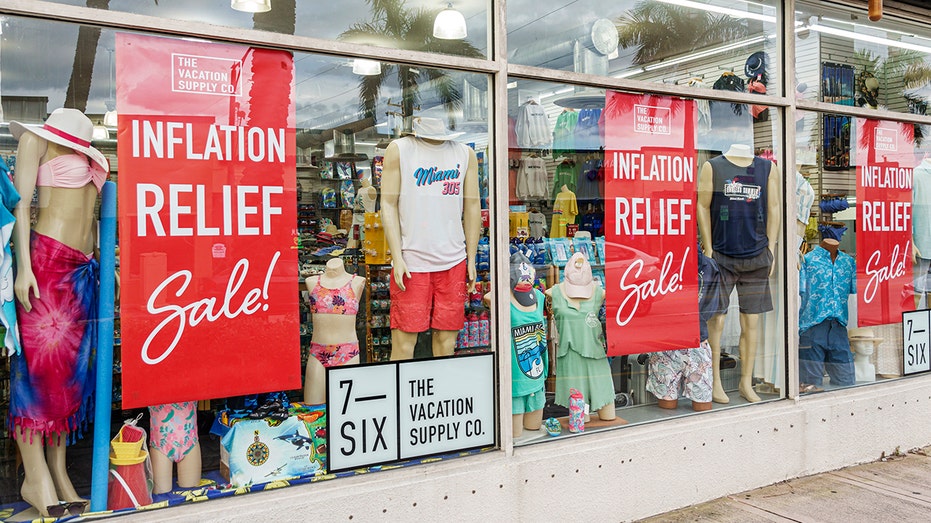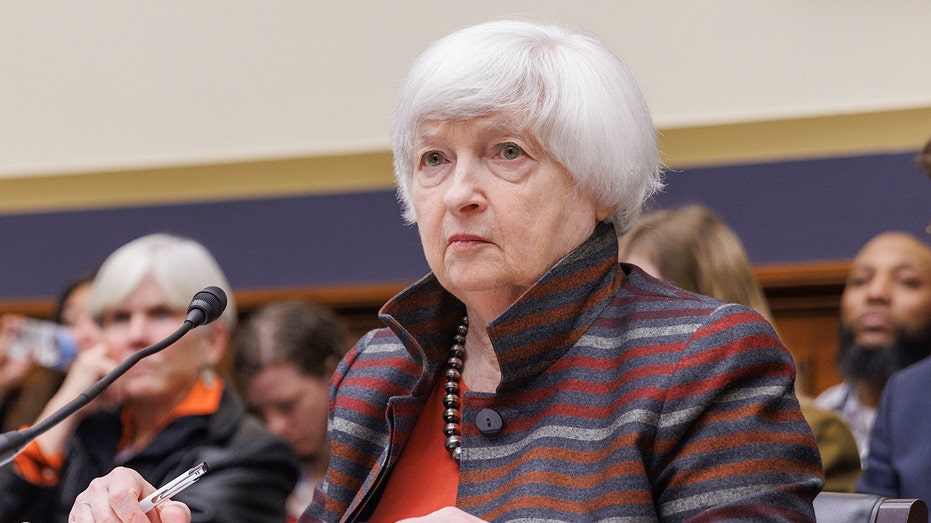Raymond James Investment Management chief market strategist Matt Orton looks ahead to earnings reports, future of the AI sector and the Fed’s rate trajectory.
Inflation is coming down faster than most economists expected, but Americans hoping for a widespread drop in prices may be disappointed, according to Treasury Secretary Janet Yellen.
While testifying before the Senate Banking Committee on Thursday, Yellen admitted that prices for most items are unlikely to return to where they were before the inflation crisis began in 2021.
“I don’t expect the level of prices to go down. Some prices will be higher than they were before the pandemic, and will stay higher,” Yellen said during a contentious exchange with Sen. John Kennedy, R-La. “But wages have risen considerably, and the pace of price increases has now receded over the past six months.”
Prices for everything including groceries, new cars and health insurance surged in 2021 and 2022 as the result of rampant inflation, which was caused by pandemic-induced disruptions in the global supply chain, an extremely tight labor market and increased consumer demand fueled in part by stimulus cash.
SOCIAL SECURITY RECIPIENTS COULD BE HIT WITH A SURPRISE TAX BILL THIS YEAR
Treasury Secretary Janet Yellen testifies before the House Committee on Financial Services in Washington, D.C., on Tuesday. (Aaron Schwartz/NurPhoto via / Getty Images)
But even though the pace of inflation has cooled sharply in recent months, prices for most goods have not yet receded — and are unlikely to do so, Yellen said.
“We don’t have to get the prices down, because wages are going up,” she said, noting that the median worker in the U.S. can buy the same basket of goods as they did in 2019 with $1,400 leftover. “So Americans, on average, are better off in spite of the fact that the level of prices is higher.”
Federal Reserve Chair Jerome Powell echoed a similar sentiment in an interview with “60 Minutes” that aired on Sunday.
“The prices of some things will decline. Others will go up. But we don’t expect to see a decline in the overall price level. That doesn’t tend to happen in economies, except in very negative circumstances,” Powell said.
While inflation has fallen considerably from a peak of 9.1% notched during June 2022, it remains above the Federal Reserve’s 2% goal. And when compared with January 2021, shortly before the inflation crisis began, prices are up a stunning 17.6%.
THE NUMBER OF HIGH-PAYING JOBS IS DWINDLING

A window display at The Vacation Supply Company in Miami Beach, Florida. (Jeffrey Greenberg/Universal Images Group via / Getty Images)
High inflation has created severe financial pressures for most U.S. households, which are forced to pay more for everyday necessities like food and rent. Food prices are up 33.7% from the start of 2021, while shelter costs are up 18.7%, according to FOX Business calculations. Energy prices, meanwhile, are up 32.8%.
The burden is disproportionately borne by low-income Americans, whose already-stretched paychecks are heavily affected by price fluctuations.
The typical U.S. household needed to pay $211 more a month in December to purchase the same goods and services it did one year ago because of still-high inflation, according to new calculations from Moody’s Analytics. Americans are paying on average $1,020 more each month compared with the same time two years ago.
GET FOX BUSINESS ON THE GO BY CLICKING HERE
Yellen’s appearance on Capitol Hill comes amid growing pessimism among U.S. households about their financial situation under President Biden.
A recent survey published by Bankrate shows that 50% of Americans say their financial situation has gotten worse since the 2020 presidential election. By comparison, just 21% think their financial situation has improved, while 26% believe it is unchanged.
“The plight of the economy over the next 12 months may help to dictate whether it was wise, or not, for President Biden to trumpet the branding of ‘Bidenomics,'” said Mark Hamrick, senior economic analyst at Bankrate.
Credit: Source link




